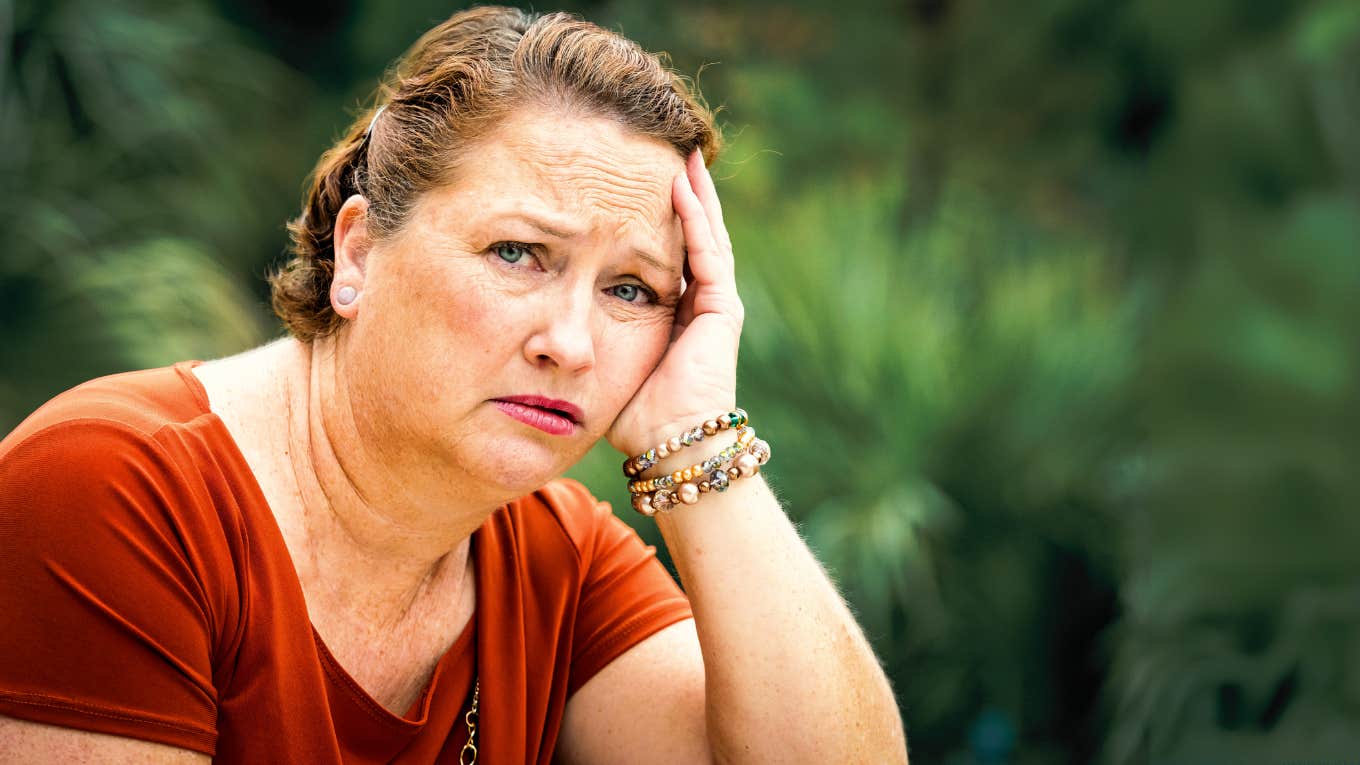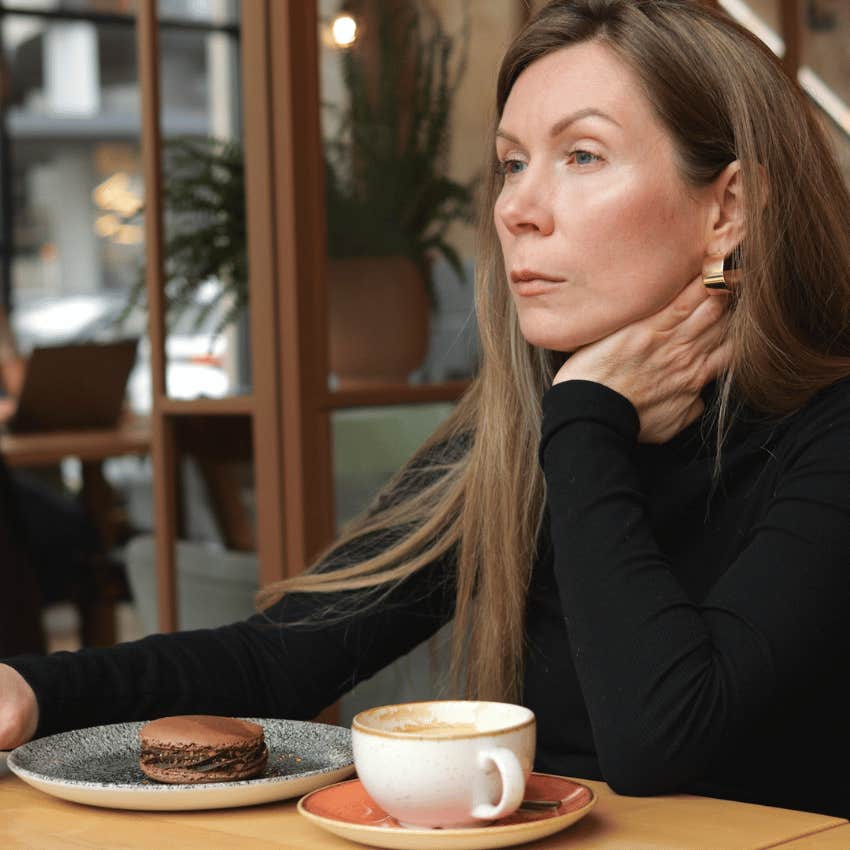The Disturbingly Common Reason So Many Adult Kids Are Choosing To Become Estranged From Their Parents
I was ahead of the trend when I decided to go “low contact” with my mother 20 years ago.
 Juanmonino | Canva
Juanmonino | Canva I recently had a disturbing experience that many others will undoubtedly face in years to come. Two of my co-workers came to me on separate occasions, needing to unburden themselves after their adult children decided to disconnect from them. Their grownup kids, like an increasing number of millennials and Gen-Z chose the nuclear option and went “no contact” with their parents.
One study found that 7 percent of adult children were estranged from their mothers while a whopping 27 percent were alienated from their fathers. In recent years, though, these unsettling numbers have surely grown as it’s become more socially acceptable for millennials and Gen-Z to cut parents out of their lives.
Young people no longer feel obligated to stay attached to moms and dads whose actions are detrimental to their mental and emotional well-being.
Unlike previous generations, they don’t feel required to put up with someone’s unacceptable behavior just because they’re related to them. This dramatic change is due, in large part, to the topic being discussed openly and often on social media. Young adults convene online and talk about their parents’ toxic behavior and how it negatively impacts them. As a result, some millennials and Gen-Z now find relief by breaking free of familial bonds, finally having peace after years of unrest.
As someone who went “low contact” with my mother 20 years ago before it became “a thing,” I relate to these young people. I respect their decision to break loose from their parents who are causing them distress. After all, I know from my own experience it’s a gut-wrenching one to make — one nobody takes lightly.
 Ground Picture | Shutterstock
Ground Picture | Shutterstock
Some parents don’t accept responsibility for the role they played.
Both of my co-workers expressed to me how wounded, confused, and caught off guard they were by their adult children’s decision. They claimed to be utterly clueless about what led up to this cruel, rash, and unimagined choice. Both said their grownup kids were being influenced by a “bad crowd,” suggesting their friends were to blame.
I knew instantly my co-workers hadn’t sought me out for my input on the matter. It was clear they simply wanted a caring soul to listen and empathize with them. Therefore, that’s precisely what I did.
Since I wasn’t particularly close to either one of them, I didn’t divulge that I had distanced myself from my mother 20 years ago. I didn’t point out to them that they weren’t taking a lick of responsibility for what had transpired.
Seeing them in such anguish, I didn’t call bullshit on their claims of ignorance about what caused the breakup. I didn’t mention their folly in struggling to pinpoint just one incident that precipitated it. I didn’t explain to them that nobody terminates a relationship with a parent based on one, two, or three bad episodes but on a lifetime of them.
I didn’t state the brutal truth: that when the breaking point finally comes, the parting of ways has been years in the making.
I didn’t bring up these points to my co-workers because their pain was too fresh and too raw. My comments wouldn’t have been helpful since they weren’t ready to hear them, let alone embrace them. At that moment, they saw themselves as just victims of the estrangement and not as participants.
Lucy Blake, PhD, shared insights on estrangement on the American Psychological Association’s podcast, “Speaking of Psychology.” She noted that estrangement is a research topic that’s just gaining traction, referencing a German study posited that 20% of adults will go through a period of estrangement with a father, and 9% will go through estrangement with a mother.
 Prathankarnpap | Shutterstock
Prathankarnpap | Shutterstock
Choosing to split up with a parent isn’t done impetuously.
As my co-workers continued to detail their heartache to me, they had no idea I was identifying more with their adult children than I was with them. After all, they didn’t know I’d made the unbelievably tough choice to go “low contact” with my mother 20 years prior.
I came to that decision after years of careful consideration, months of therapy, and a lifetime of dealing with a mom who always put her men before her kids. This pattern started with my verbally abusive father and continued with a string of other guys.
When I distanced myself from my mother, it was anything but an impulsive move. It only happened when I had finally accepted the hard, undeniable truth that her love life was far more important to her than her grandchildren and me.
My decision wasn’t a rash one. I was 40 years old at the time, married with two young sons, and working as a teacher. When my older son was diagnosed with autism, my mother didn’t offer up even a speck of compassion. She pretended it didn’t happen and went about business as usual, talking incessantly about her boyfriend.
Her behavior at that time wasn’t an anomaly but part of a very long pattern. It made me recall so many episodes from my childhood when I felt emotionally abandoned by her as she tended to her men.
As a result of that episode and all those preceding it, I concluded that withdrawing from my mother was necessary for my mental health, the well-being of my marriage, and the protection of my boys.
My therapist at the time had encouraged me to stay close to my mom as that was the overriding advice mental health professionals gave in those days. Twenty years ago, there weren’t discussions about going “low contact,” “no contact,” and establishing “boundaries” like there are today.
I went against my therapist’s guidance because I realized, beyond a shadow of a doubt, that I needed to distance myself from my mother to preserve my sanity. Twenty years later, I don’t regret it. It was the right decision for my family and me.
On the YourTango podcast Open Relationships: Transforming Together, therapist Dr. Alexandra Soloman revealed several instances where cutting ties with family is not only an intelligent choice but a safe one. "It does become a choice of the only way to save myself is by stepping away," she said.
 ShowRecMedia | Shutterstock
ShowRecMedia | Shutterstock
Everybody wants a loving parent.
It turns out others distanced themselves from their parents for the same reason I had. A 2015 study conducted by the University of Cambridge's Centre for Family Research found that 77 percent of those surveyed said that emotional abuse during childhood was why they chose to become estranged from their moms. Fifty-nine percent stated it was why they were alienated from their fathers.
Without a doubt, a parent’s poor treatment of us as kids can haunt us well into adulthood and be a source of tension in the relationship. When they don’t cop to their bad behavior in the past, it can become virtually impossible to stay connected. When there’s no shared truth between a parent and a child, their bond is superficial at best and noxious at worst.
If I could have spoken freely with my co-workers, I would have reminded them that every person on the face of the planet longs to have a warm, loving parent. Each one of us yearns for a mom and dad who are curious about our lives and care about what we do, think, feel, and say.
Each one of us dreams about having a mom and dad who guides us, supports us, inspires us, and cherishes us. If we’re fortunate enough to have that kind of parent, there’s not a chance we’d ever willingly give them up.
When an adult child like me finally makes the decision to distance ourselves from a parent, we’ve finally accepted a hard truth — that we didn’t have that kind of mom or dad. The estrangement comes after a prolonged period of hope when we desperately longed for things to be different than they were. When we embraced the reality of the situation, we stopped our suffering at long last and found peace of mind.
McKenna Meyers is a longtime teacher who writes about early childhood education, parenting, relationships, celebrities, current events, and politics on Medium. She’s recently become an empty-nester and is now enjoying more free time to hike, kayak, and travel with her husband and two dogs.

